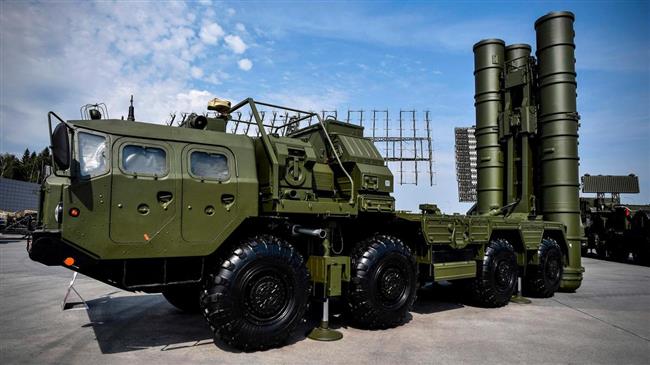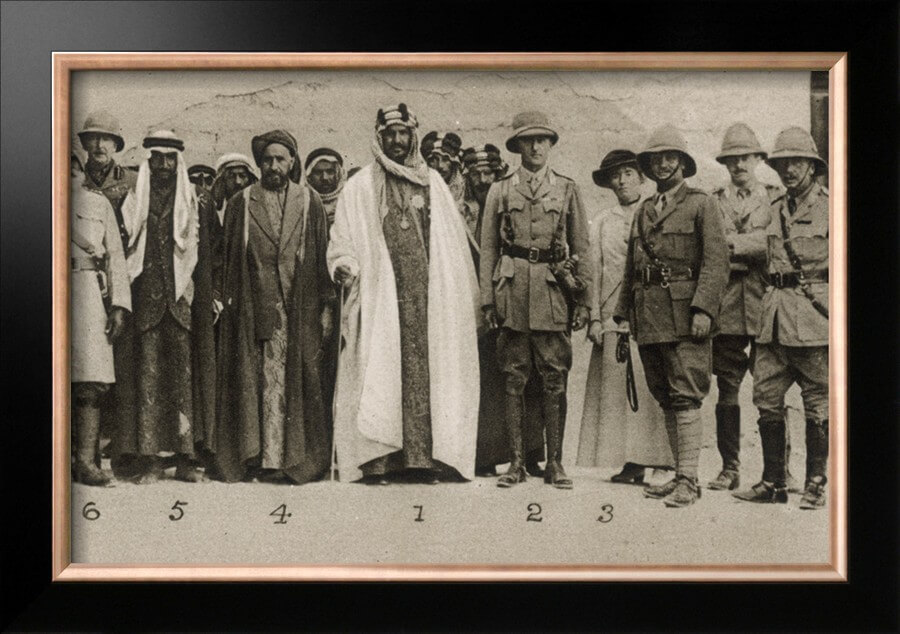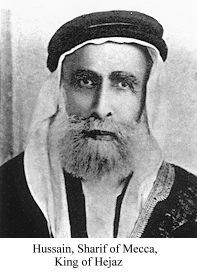To say that Saudi Arabia has been the lynchpin to U.S. foreign policy objectives in the Middle East and central Asia is to engage in massive understatement. For more than fifty years the Saudis have helped prop up U.S. foreign policy by exporting their oil to the world and taking only dollars in return.
Their currency, the Riyal, has been pegged to the U.S. dollar since then Secretary of State under President Nixon, Henry Kissinger, brokered that deal that built the so-called petrodollar system.
Now, in the intervening decades the petrodollar has been a buzzword thrown around by many, including myself, to explain the architecture of the U.S.’s imperial ambitions. In many ways, it has served a crucial part of that, at times. But, it was most needed during the early years of the dollar reserve standard, helping to legitimize this new currency regime and provide a market for U.S. debt around the world to replace gold.
After that it was just one aspect of a much bigger game built on the ever-expanding Ponzi scheme of fake funny money. In reality, the eurodollar shadow banking system is just a lot bigger than the petrodollar.
That said, I don’t discount it completely, as I understand this is real money changing hands for real goods, rather than the vast quantities of dollars out there supporting an increasingly creaky financialized system. Real trade matters and what currency that trade occurs in, also matters.
The U.S. closely defended the petrodollar famously going to war with any country that dared to offer oil on international markets in any currency other than the dollar, c.f. Iraq under Saddam Hussein. But, times change and so do the structure of capital markets.
So, when evaluating the health of the petrodollar system and its importance today it’s important to realize that the oil market is far more fragmented in payment terms than its been since the early 1970’s.
As a system, the petrodollar was always going to die a death of a thousand cuts. To my reckoning the first inklings of this began in late 2012 after President Obama finally used the financial nuclear weapon, expulsion from the SWIFT payment system, on Iran for pretty much no reason.
Earlier this year I wrote a piece describing why in negotiations you never go nuclear and how Obama made the biggest strategic blunder, possibly in U.S. history, by first threatening the Swiss over bank secrecy and then Iran.
The fact that the Obama administration politicized SWIFT when it did ended an era of international finance. The world financial system ended any illusions it had over who was in charge and who dictated what terms.
The problem with that is once you go there, there’s no going back, which was {Jim} Sinclair’s point over a decade ago.
Threatening Switzerland with SWIFT expulsion wasn’t a sign of strength, however, it was a sign of weakness. Only weak people bully their friends into submission. It showed that the U.S. had no leverage over than the Swiss other than SWIFT, a clear sign of desperation.
And that’s what the U.S. did when it pushed the big red ‘history eraser’ button.
The Swiss knuckled under. Its vaunted banking privacy is now a part of history.
Iran, however, in 2012, facing a similar threat from Obama, didn’t knuckle under and forced Obama to make good on his threat. Once you uncork the nuclear weapon you can’t threaten with lesser weapons, they have no sway. This is a lesson Donald Trump would learn the hard way since 2018.
Iran bucked the petrodollar to sell its oil by making a goods-for-oil swap arrangement with India. Iran was laughed at by U.S. foreign policy wonks at the time. Then we found out that Turkey was laundering oil sales for Iran through its banks using gold.
Its currency, the Rial, since then has been under constant attack by the U.S., most viciously under President Trump who sought to do what Obama couldn’t do, drive Iran’s oil exports to zero. The goal was regime change.
I chronicled this in detail, over these past four years, saying explicitly that the strategy was stupid and short-sighted. It didn’t work. It couldn’t work.
Iran’s resistance to Trump’s bullying only further entrenched the existing power structures there and hardened the Iranian people to become more disagreeable, more disdainful of America and, likely, Americans.
All it did was force Iran to develop alternate plans and find new markets. Those alternatives meant courting better relations with China, Russia and Turkey, which the U.S. tried hard to sabotage. As long as Iran was as good as its word, supplying oil and acting as a reliable partner in diplomacy, eventually deals would come to them.
Last year’s $400 billion, 20-year investment from China is the culmination of that resistance and ingenuity. That’s the whirlwind wrought by Trump’s pro-Israel, anti-Iran and confused Syria/Afghanistan policies.
In the intervening years, the U.S. sanctioned Russia who sells their oil, a lot of it, in a number of different currencies, some of which are still dollars. China began a yuan-denominated oil futures contract a few years ago, which is ultimately convertible to gold in Shanghai.
The U.S. still trades with China and Russia and yet no one who called for the death of the petrodollar then was right. These things are a process, not a step-function. The point being that the petrodollar isn’t dependent on it being a monopsony in oil trading. The system has been leaking for nearly a decade now.
Iran is an example of why Davos will fail to pull off anything more than the most limited form of their Great Reset. So is Russia. Necessity is the mother of innovation. Putin makes this point all the time. And he, like the Mullahs in Iran, were laughed at by the U.S. foreign policy wonks on K Street.
But, this article isn’t about Iran or Russia or China. It’s about Saudi Arabia.
Now that Afghanistan is all but settled in the geopolitical sense now the question is all about the fallout from it. For years we’ve seen the coalition that intended to atomize Syria splinter, bit by bit. First it was Qatar, who defied Saudi Crown Prince Mohammed bin Salman (MbS), who was isolated just like Iran. Qatar survived.
Then it was Turkey, constantly flipping and flopping around under President Erdogan trying to fill the power voids left as Russia’s military successes in Syria and diplomatic successes around the region frustrated U.S., NATO and Israeli plans there.
Slowly, bit by bit, Russia and China moved into those spaces while Erdogan tried and failed…. over and over and over again.
So, with the U.S.’s presence in Afghanistan now, officially, part of history, big changes are coming to the entire region fast and furious.
And the biggest one was the vague but significant defense coordination deal between Russia and Saudi Arabia. Because now, after having wormed its way into control over the marginal barrel of oil produced globally Russia controls OPEC+. It’s a nominal power-sharing agreement with the Saudis, but ultimately, with Trump out of the picture, the Saudis realized they have very few, if any, friends left in the world.
I went on this history lesson to remind you that this moment didn’t just happen. It was built over a decade of U.S. foreign policy mistakes. Mistakes that tried to extend the benefits and the narrative of the petrodollar for far longer than it should have.
The system should have died years ago. But it’s limped along indulging MbS’s bloodlust in Yemen, Syria and Lebanon. Rather than subsidizing U.S. foreign policy goals, it subsidized the Saudi Royal family’s continued delusion that it was a global power broker.
That continued until Trump was overthrown and Biden was installed. Since then MbS and the rest of the House of Saud understood what their future looked like and in whose hands it was.
Russia’s.
We’ve seen negotiations behind the scenes between Riyadh and Tehran, between Riyadh and Damascus. Syria is coming back into the Arab League. Iran and the Saudis are winding down the disastrous conflict in Yemen.
The time to sue for peace was at hand and to find a way forward that ensured relative stability. So, how does the petrodollar fit into this?
For now it doesn’t. Those thinking that the petrodollar is dead because of this deal are getting way ahead of themselves. With oil prices in the $70’s (Brent crude) there is no immediate threat to the future of the Saudi government. They can handle a mild budget deficit at these prices for a long time. There is no pressure on the Riyal peg at these prices.
What they cannot handle is oil in the $30’s or $40’s for any length of time. That is what blows out the budget deficit.
So, for now, as long as the U.S. doesn’t further antagonize MbS there is no reason why what’s left of the petrodollar can’t remain in place.
to that end, that bane of Davos’ existence, Southfront.org whose distribution is heavily censored by Big Tech, is speculating that the U.S. could sanction Saudi Arabia for this agreement with Russia.
The United States is urging its allies to avoid major defense deals with Russia, a State Department spokesman said, commenting on the signing of a military cooperation agreement between Russia and Saudi Arabia.
“We continue to urge all our partners and allies to avoid major new deals with the Russian defense sector, which we have made clear with … the Countering America’s Adversaries Through Sanctions Act (CAATSA),” the spokesman told Russian state outlet RIA.
While this is speculation, it is on target however, because this statement from the State Dept. came before the Saudis sat down and signed an agreement with the Russians during the height of the U.S.’s shameful and shambolic retreat from Kabul.
As insults go in geopolitics, this was a pretty big one.
So, that will be the next shoe to drop here. If I’m right and the goal of those behind the Biden Administration (itself with a use-by date similar to that of the petrodollar) is to dismantle the U.S. as much as possible, then we will see Lindsey Graham and others wring their blood-soaked hands in grief lamenting the necessity of sanctioning our long-term friends in Saudi Arabia.
It will be as nauseating as it is predictable.
And that will be a willful act of destruction of a still-significant portion of foreign demand for the U.S. dollar. This, of course, plays directly into the hands of Davos who are actively undermining confidence in the U.S. politically, economically, culturally and socially. Because the minute the U.S. does this MbS’s only rational move is to break the Riyal’s peg to the dollar and allow it to float freely.
At $70 per barrel the effect on the Riyal will be minimal.
That said, it would allow for a sharp drop in oil prices internationally as the Saudis, who have needed a strong oil price to fund its domestic welfare state, will no longer need as many dollars for its oil to do that. So, expect Davos to try to help this along. Well, they already tried when the UAE tried to torpedo OPEC+’s solidarity a few weeks back.
If oil were to drop sharply, say into the $40’s, it would create massive inflation in Saudi Arabia due to a sharp drop in the now-exposed-to-market-forces Riyal. And the Saudis would then have to go through the same painful adjustment that Russia went through in 2015-17, when it finally ended its strong ruble policy.
This is why Biden is told to beg publicly for lower oil prices. It has nothing to do with helping American consumers and has everything to do with baiting out the Arab countries to de-peg their currencies from the petrodollar and hope to crash oil prices in the confusion.
So, cue the Mu variant of COVID-9/11.
The Saudis, however, for their part have learned the lessons well what happens when you get into a price war with Russia. You lose. So, instead of fighting Russia for market share, they’ve decided to coordinate production for the big win-win for everyone while the U.S. continues to grapple with the reality that its empire is not only crumbling, but being actively dismantled from within.
And given where we’re headed, I’d say that the ones laughing now aren’t at the State Department.
Join my Patreon if you like laughing at neocons.














